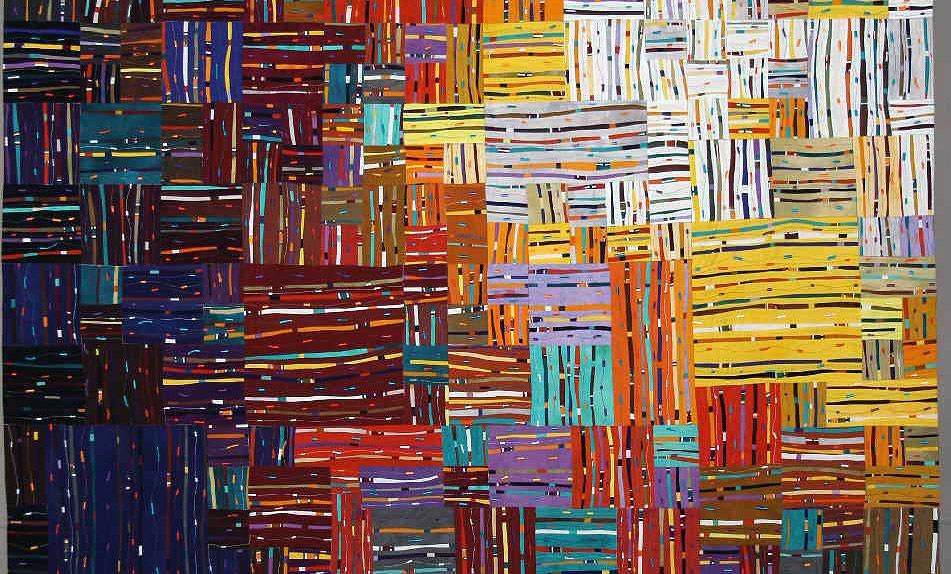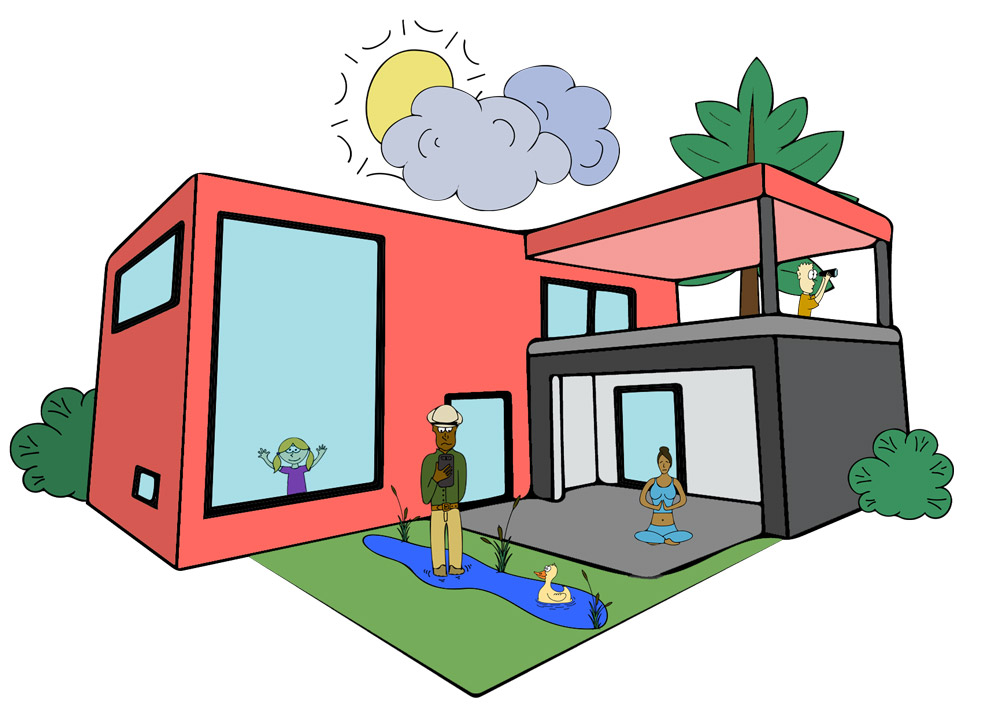#120: Our world is a multidimensional collage
How do you experience the world around you? And how could you put that into words? In my PhD project I collect descriptions how people perceive landscapes with a completely new approach. Will you contribute?

Our world is a multidimensional collage of people, perceptions and places, stitched into the fabric of time. Individual threads intertwining and splicing into senses, perceptions, associations and preferences. How we experience the world, and specifically the (in)finite variety of landscapes that constitute it directly influences our mental and physical well-being. Each of us perceives and communicates about the world in a very different way, influenced by culture, geography and our individual preferences.
Of high practical and scientific relevance
Understanding and analysing landscape perception matters practically to policymakers charged with protecting and managing landscapes, and academically, if we wish to understand how and what we perceive in the environment, and how this influences behaviour.
"After 5 hours of online meetings it's easy to get distracted with the view over the top of my computer screen. The sea is a dark slate grey colour, looking more foreboding as the light fades. The moody sky is a lighter shade of grey, backlit by the weak winter sun. In the distance, the dark outlines of islands are just visible. The grey scale is punctuated by white wave crests which are being whipped up by the Northwesterly winds. All the shades gradually become one as the invisible sun starts to dip below the horizon. It is a beautiful and ever changing vista."
| One the millions of people working from home, stuck in yet another Zoom meeting, staring out of the window. Read this contribution here. |
A completely new, playful approach
Traditional methods of collecting data about individual perception are cumbersome, time consuming, expensive and hard to scale across space and time. New ways of crowdsourcing landscape perception, have great potential. My PhD project is exploring this through an online application called Window Expeditions. Within the application, individuals are encouraged to write, share and explore natural language landscape descriptions. Users have complete freedom in what and how they write, leading to diverse accounts of how people experience the world.
My aim is to create a multilingual corpus of landscape descriptions experienced both from home, especially during the pandemic, and also when people are out and about. I aim to use these descriptions for research, but hope they will also simply provide a way of experiencing and enjoying new places from our desktops.
"Living in a housing block in Schwamendingen has its pros and cons. One definite pro is staying near Züriberg, which, in normal times, would mean a getaway opportunity at all times. From my balcony I can see the top of the 'mountain' and the tower upon it. It is in running distance but still far enough to be occluded by the thunderstorms occasionally sweeping in from the west. Below the mountain's silhouette I can only see houses as my south facing balcony faces a kind of backyard surrounded by similar houses. The yard is visited by many different birds but I like when the magpies come to chat on the rooftops in the morning. Their rattling voice is definitely much better than the rattling of the chopper bike that is being repaired every third day by its enthusiastic owner within the echoing backyard."
| From a perhaps more familiar Zurich landscape where urbanity meets greenness, and weather, birds and people add to the soundtrack of what we see from the window. Read this contribution here. |
Like the roots of a global digital tree
These, and many more descriptions we have collected, provide us with data on how landscapes are perceived using natural language. Already descriptions from all over the world have found their way to our server in Zurich, much like the roots of a global digital tree. In Zurich, these individual roots will be combined, compared, dissected, analysed and finally recombined. The individual landscape descriptions will be reconfigured and combined, into the trunk of the research tree, slowly branching out to individual clusters of similar perceptions.
I would love it if you would add a description of the view from your window.
Window Expeditions
Manuel Bär
